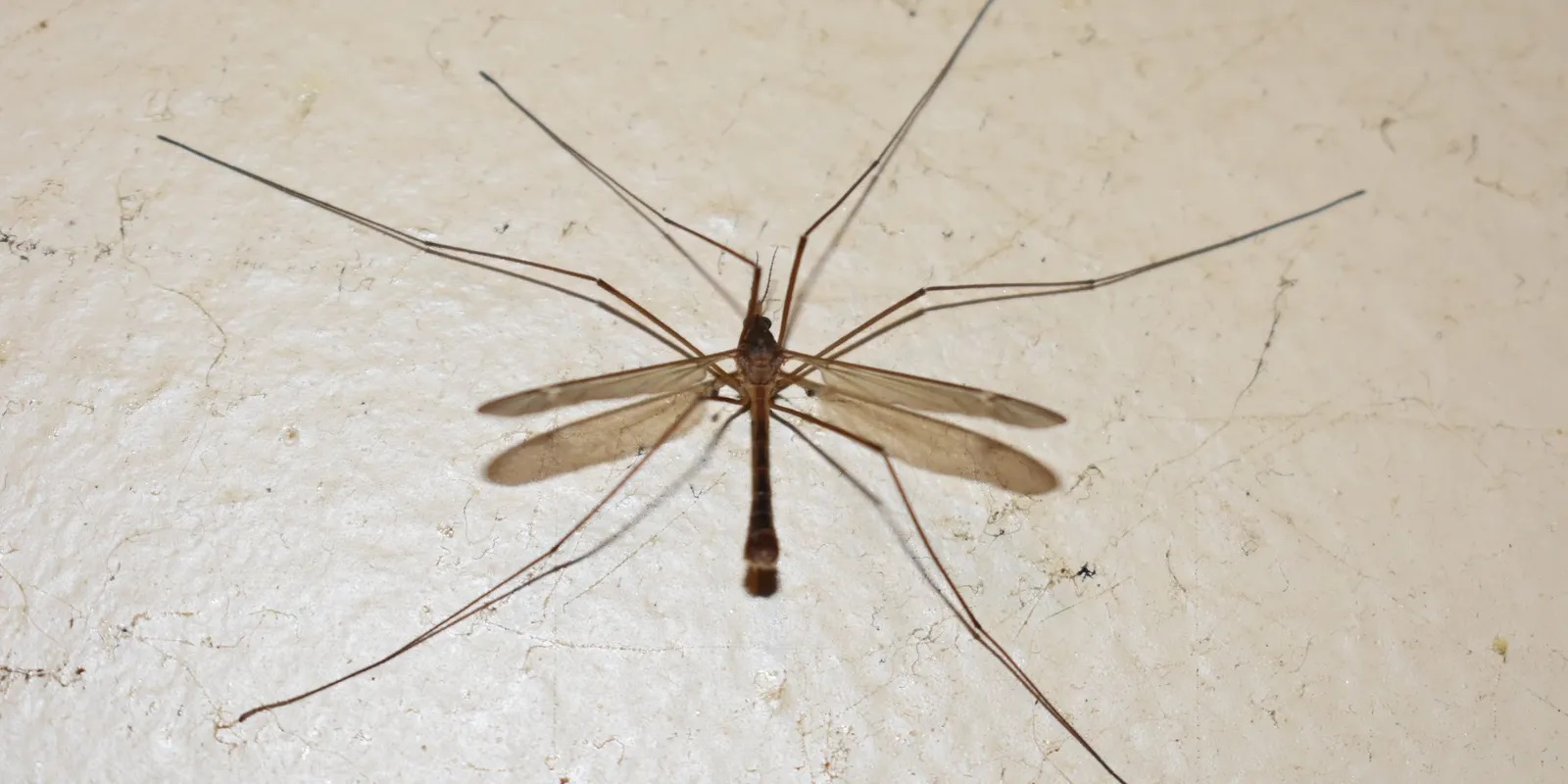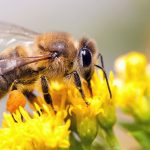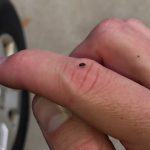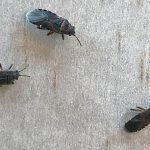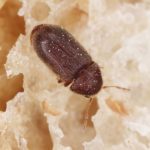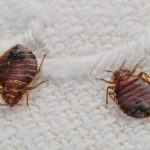Are you looking for a way to get rid of crane flies naturally? Crane flies are pesky little bugs that wreak havoc in your garden and lawn.
Not only do they damage plants, but they also spread disease and attract other rodents. Fortunately, natural ways exist to eliminate these critters without harsh chemicals or expensive pest control services.
First, correctly identify the crane flies. These insects look like mosquitoes but are much larger with long legs.
They’re usually found near standing water or damp areas such as flower beds, grassy spots, basements, and attics. Now that you know what you’re dealing with, it’s time to take action.
One of the most effective ways to get rid of crane flies is by using beneficial nematodes. These microscopic worms kill crane fly larvae before they can cause any damage – simply follow package instructions when buying them online or at your local garden center and apply them directly to the affected area.
Introducing predators into your garden or lawn is another excellent way to eliminate crane flies naturally. Ladybugs, lacewings, praying mantises, and dragonflies all feed on crane fly larvae and help keep their populations under control.
Adult crane flies are also adored by birds like swallows and swifts, so building birdhouses in your yard will reduce their numbers significantly over time. Finally, maintaining a clean lawn is one of the best preventative measures against a crane fly infestation from occurring in the first place.
With these simple steps, you can easily get rid of crane flies naturally without having to resort to harsh chemicals or costly pest control services.
Sealing Cracks and Gaps in Your Home
Contents
- 1 Sealing Cracks and Gaps in Your Home
- 2 Keeping Your Home Clean and Tidy
- 3 Planting Herbs and Plants to Repel Crane Flies
- 4 Using Essential Oils for Natural Insect Repellent
- 5 Vacuuming Up Any Visible Crane Flies
- 6 Understanding That Crane Flies Are Harmless to Humans and Pets
- 7 Knowing When Crane Flies Are Most Active
- 8 Learning About Natural Ways to Get Rid of Crane Flies Without Harmful Chemicals
- 9 Conclusion
These pesky little insects can be a real nuisance, but there are some natural and safe ways to get rid of them.
The first step is to seal any cracks or gaps in your home’s foundation, walls, or windows. This will help prevent them from entering your house in the first place.
Use weatherstripping or caulk to seal all the edges of doors and windows, and remember to check for any gaps in your home’s foundation. Installing screens on windows and doors will also keep these pests out.
In addition, it’s essential to keep your house clean and tidy. Crane flies are drawn to moist environments, so clean up any standing water or damp areas.
Declutter your home and eliminate unnecessary items that could provide a hiding place for crane flies. Lastly, you can use natural deterrents such as essential oils to keep them away.
Peppermint oil is especially effective at repelling crane flies – mix a few drops with water in a spray bottle and mist areas where they are most active.
Keeping Your Home Clean and Tidy
Keeping your home clean and tidy is the best way to prevent crane flies from entering your living space.
- Regularly vacuum and sweep your floors, particularly in the corners and along walls, as these are common hiding places for crane flies. Wipe down any surfaces that are prone to moisture accumulation, such as sinks, countertops, and shower walls.
- Additionally, make sure to fix any leaks in the house and keep the drains unclogged to minimize moisture build-up. In outdoor living areas, remove any puddles of standing water, garden debris, and piles of leaves or grass.
- Sealing up any cracks or gaps in windows, doors, and walls can also help prevent crane flies from entering your home. Using essential oils is another natural way to get rid of crane flies.
- Cedarwood, lavender, and eucalyptus essential oils can help repel them away. Mix a few drops of these oils with water in a spray bottle and spritz the solution around your living spaces – particularly around windows and doors – for an effective way to discourage crane flies.
It’s worth noting that killing crane flies isn’t always necessary – they are harmless to humans and pets, so you can often just allow them to be if you only see them occasionally.
Planting Herbs and Plants to Repel Crane Flies
Fortunately, a natural and effective way to keep them away is to plant herbs and plants that repel crane flies.
- Lavender is the most popular plant for repelling crane flies due to its calming aroma. Plant it in pots or directly on the ground near windows and doors to keep them away from your home.
- Mint is another great option – grow it in pots or crush up the leaves and rub them on your skin as an insect repellant. Rosemary and Sage are more herbs that can be planted in your garden or pots to keep crane flies away from your house.
- Certain plants are also known for helping to repel crane flies. Marigolds, Petunias, and Chrysanthemums are all effective options for keeping these pesky insects at bay.
- Planting herbs and plants to repel crane flies is a simple yet effective way to create a beautiful garden while still keeping unwanted pests away from your home.
Using Essential Oils for Natural Insect Repellent
Essential oils offer a natural and effective way to repel crane flies and insects.
These potent plant-based chemicals mask the body odor that attracts insects, and some are also toxic to pests, making them highly effective at repelling them. Popular essential oils for repelling crane flies include lavender, peppermint, eucalyptus, clove, and tea tree oils.
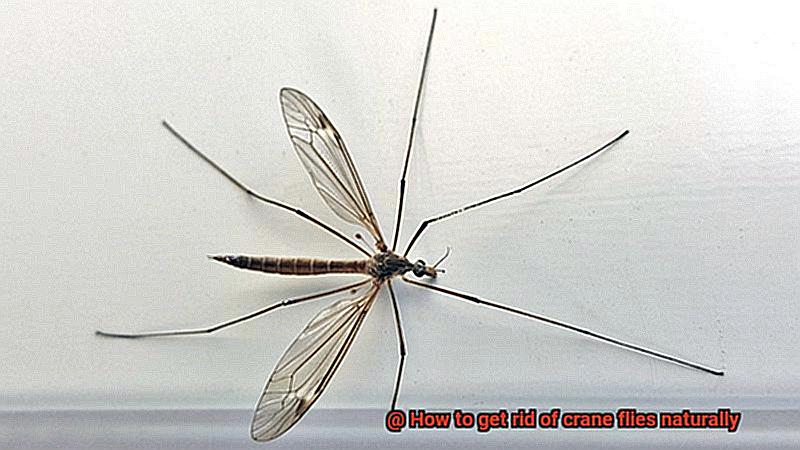
When using essential oils topically, it’s important to dilute them properly with a carrier oil such as coconut or olive oil – 2-3 drops per teaspoon of carrier oil is a good rule of thumb. To create an insect-repellent spray, mix 10-15 drops of essential oil with 1 cup of water and one teaspoon of witch hazel or vodka.
Shake well and spray on surfaces or directly on the skin. However, it’s important to note that essential oils can be toxic to pets and may cause adverse reactions in young children or individuals with sensitive skin.
Always perform a patch test before using essential oils topically, and consult with a vet before using them on children or pets. Using essential oils is an easy and cost-effective way to keep crane flies out of your home without resorting to harsh chemicals.
Plus, you’ll get the bonus of having your house smell divine.
Vacuuming Up Any Visible Crane Flies
Getting rid of pesky crane flies from your home doesn’t have to be a daunting task.
Vacuuming up any visible crane flies is an easy, cost-effective way to take care of the problem without resorting to harsh chemicals. To prevent them from entering in the first place, make sure to keep windows and doors closed.
When you do spot a few flies around your house, use a vacuum cleaner with a nozzle attachment to suck them up. Be thorough when vacuuming and check corners, ceilings, and other hard-to-reach areas where they might be hiding.
This will remove the visible flies and their eggs and larvae, preventing future infestations. However, more than vacuuming is needed if you have a large infestation of crane flies.
Understanding That Crane Flies Are Harmless to Humans and Pets
These pesky insects, also known as mosquito hawks or daddy long legs, are often mistaken for mosquitoes due to their long legs and wings.
However, unlike mosquitoes, crane flies do not bite or spread diseases. It’s important to understand that crane flies are harmless to humans and pets, and their presence should not cause concern.
They serve an essential role in the ecosystem by providing food for other animals, such as birds and fish, and helping with pollination and decomposition. It’s also worth noting that crane flies have a short lifespan of only a few days to weeks and do not reproduce indoors.
Therefore, eliminating them from the indoors is only necessary if they become a problem. Using chemical insecticides to get rid of crane flies can harm the environment and other beneficial insects.
Knowing When Crane Flies Are Most Active
Crane flies may look like pesky mosquitoes, but they’re harmless to humans and play an important role in the ecosystem.
Knowing when they are most active is critical to preventing them from entering your home. From late summer to early fall, crane flies are most active as adult crane flies emerge from pupae and begin mating and laying eggs.
During this period, you may spot them around sources of light such as windows and porch lights, particularly during the evening or early morning hours.
To reduce their attraction to these lights, try closing curtains or blinds at night or switching out bright white lights for yellow bug lights, which are less attractive to crane flies.
Learning About Natural Ways to Get Rid of Crane Flies Without Harmful Chemicals
You don’t need to resort to harsh, toxic chemicals to eliminate them- plenty of natural alternatives exist.
To start, make sure your house is sealed up tight. Look for cracks and holes in the foundation, walls, and windows that could allow them in.
Keep your house organized and tidy, especially in humid areas where crane flies like to breed. Planting certain herbs and plants around your home can also help repel them, such as lavender, citronella, and mint.
Essential oils are a great way to keep crane flies away. Citronella, eucalyptus, and clove oil are all effective insect repellents that can help you eliminate these pesky bugs.
For convenient application, diffuse the oils or mix a few drops with water in a spray bottle. If you don’t have any crane flies in your house right now, try using a vacuum cleaner to catch them – it’s fast and easy.
Most of their activity occurs during the fall months, and they usually die off naturally during the winter, so there’s no need to take action unless they’re causing an issue in your household.
Conclusion
Getting rid of crane flies can be a manageable task.
With the proper knowledge and natural methods, you can protect your home from these pesky pests without resorting to harsh chemicals or costly pest control services. Start by correctly identifying crane flies; they look like mosquitoes on their legs but are much more significant.
To eliminate them, use beneficial nematodes, introduce predators into your garden or lawn, and keep it clean and tidy. Plant herbs that repel crane flies, such as lavender, mint, rosemary, and marigolds.
Essential oils such as peppermint oil are also effective at repelling them – add a few drops to a spray bottle with water and mist areas where they are most active. Vacuuming any visible crane flies is another successful way to tackle the problem without harsh chemicals.
Knowing when they’re most active – usually late summer to early fall – will help you prevent them from entering your house in the first place.

